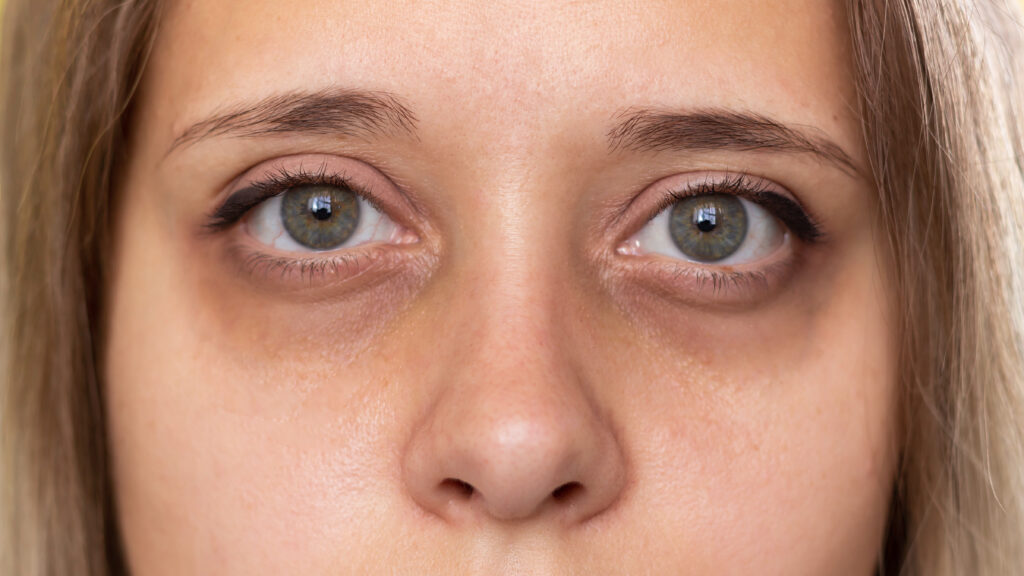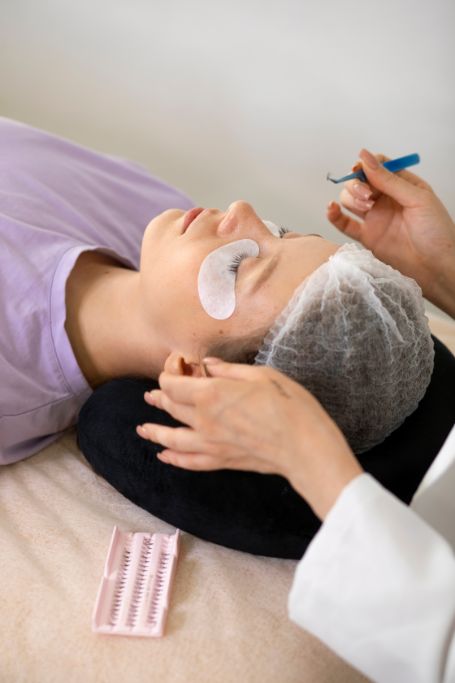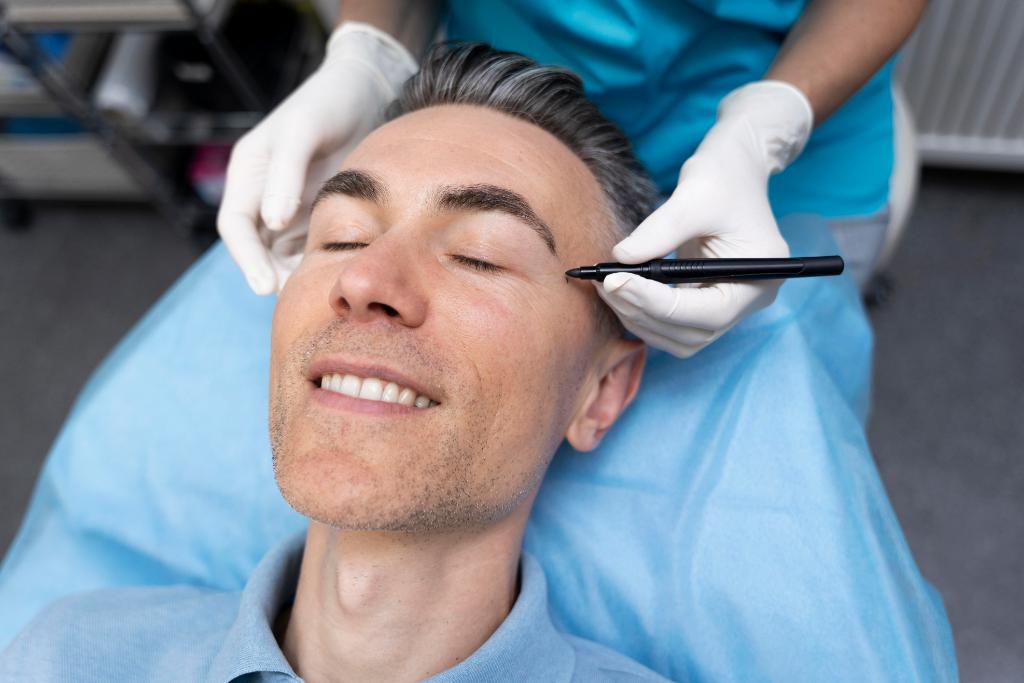
What are dark circles?
Periorbital dark circles, referred to as dark circles, can result from a number of endogenous and exogenous sources and can give your face a tired, lifeless appearance. Proactiv dark circle treatments can help minimise them, albeit they might not be permanent.
Worried about your skin condition? Get in touch with the best derma consultant in Aurangabad. Treating dark circles is crucial because they can give the impression that you are always exhausted. In addition to this, Dark circles can also negatively impact one’s outlook, both personally and professionally. They make you appear older and worn out, thus eliminating them is crucial for your confidence.
Dark circles can afflict both men and women as adults, but they are extremely uncommon in younger people. This is due to the fact that as people age, their skin thins and their collagen levels decrease, resulting in the appearance of dark circles. While there may be other reasons contributing to dark circles, fatigue and stress certainly have a deleterious effect on your complexion and raise your risk of getting dark circles.
The colour of your black circles can range from purple to dull brownish depending on your skin tone. It might also appear as a result of changes in lifestyle. People with fluid imbalances or localised edema may have puffy eyelids that cast shadows under the eyes, resulting in dark circles. Another possible cause of dark circles is genetics.
Causes of dark circles
- Thinning of under-eye skin
- Poor sleep habits
- Hay Fever
- Aging
- Periorbital Hyperpigmentation
- Excess production of melanin
- Deficiency of iron, causing Anaemia
- High exposure to Sunlight
- Excessive eye rubbing
- Smoking habits
- Genetic predominance
- Thinning of fat tissues around the eyes
- Thyroid conditions
- Certain Medications
- Stress, Fatigue
When should I meet a dermatologist for dark circles?
To find out what’s causing your dark circles, it’s advisable to consult your doctor. You might not be aware of illnesses like hypothyroidism, extreme dehydration, malnourishment, liver problems, etc. In order to naturally eliminate black circles under your eyes, doctors may also advise you to change the way you eat. This may involve adding vitamins to your diet or thyroxine supplements to improve thyroid function.
Are you also suffering from dark circles?
Want to know the solution immediately to treat them? Feel free to ask our skin specialist and dermatologist at Dermaconsult clinic, Aurangabad.
Treatments for dark circles
Skin lightening creams
Choosing skin lightening products is a crucial process because you’re going to apply it to delicate parts of your face. Moreover, If you have chronic dark circles and you want to use skin lightening for dark circle removal, hence it’s vital to keep in mind that the skin around your eyes is delicate and could be damaged easily.
If the skin lightening product is too strong, it can lead to permanent scarring. Therefore you should ensure that consistent use of skin lightening products, around the eyes, helps in faster removal.
Laser therapy:
Only T/T of dark circles can be treated with laser therapy, moreover Indian skin tones respond well to it. Hence the most successful treatment for this is laser therapy. There are two types of lasers: ablative and non-ablative lasers. Additionally, a variety of noninvasive lasers that target pigment and vascularity have been successfully used to treat periorbital hyperpigmentation.
The intensity of dark circles can be used to classify them, which makes it easier to select the right treatment based on how they seem. For optimal results, it is important to identify them and use the laser appropriately. Different types of lasers are suitable for different types of dark circles.
The administration of the treatment is determined by the wavelengths, the duration of the pulse, and the actual absorption by the skin. Diode lasers and pulsed dye are considered to have the fewest negative effects and to be somewhat less invasive. Converging high- or low-power lights on the affected area can be one way to treat this, depending on the wavelengths, pulse features, and radiant exposure.
Carbon dioxide laser:
This process tightens the skin by promoting the growth of collagen. It helps with pigmented dark circle elimination, rarely leaves permanent scars, and has few adverse effects.
The lengthy process, which involves the use of a high-energy laser, may result in swelling and a burning feeling that persists for longer than three days. On the other hand, a gentler technique using low power CO2 might have fewer adverse effects but also have lower efficacy.
Fractional Laser:
The process of using heat to injure small sections of skin in order to promote the body’s natural process of producing collagen as the body attempts to repair the damage. As a result, the surgery is accurate and spares the surrounding tissues; there are few dangers and a short recovery period. Patients with melasma who have pigmentation in their skin can benefit from this procedure. Fractional lasers help cover the veins around the eyes and help fight vascular dark circles by rejuvenating collagen.
Dermal fillers
Dermal fillers are medical device implants that have been approved by the FDA for use in helping to create a smoother and/or fuller appearance in the face.Including nasolabial folds (the lines that run from the sides of the nose to the edges of the mouth), cheeks, chin, lips, and back of the hands. They are also referred to as injectable implants, soft tissue fillers, lip and facial fillers, or wrinkle fillers.
Therefore, patients may need to repeat the treatment after a while in order to retain the desired result because some dermal fillers are naturally absorbed over time. The underlying tissue structure, as well as the quantity and kind of filler employed, will determine the success of the outcome. The filler material and the injection site determine how long the effect lasts.
Chemical peels
It is a surgical treatment performed by licensed dermatologists in which the skin is treated with mild chemicals. The resulting new skin feels smoother and more translucent. The hands, neck, and face are all affected by this process.
In this process, chemical agents like glycolic acid, trichloroacetic acid, salicylic acid, lactic acid, or carboxylic acids are frequently used. Glycolic acid and other alpha hydroxy acids can help lessen the hyperpigmentation under the eyes.
Chemical exfoliation is not the only benefit of chemical peels. In addition to eliminating dead skin, deep peeling can effectively repair sun-induced wrinkles and reduce fine lines around the lips and eyes. It also helps to fade melasma, freckles, dark spots, age spots, and acne scars.
Why Choose Dermaconsult clinic for dark circles treatment?
Dermaconsult clinic is the top skin & VD clinic in Aurangabad. We have the necessary tools. Our goal is to assist you in regaining self-assurance and presenting the finest version of yourself. Speak with us for a long-term cure to your puffy eyes and dark circles.
Using evidence-based treatment techniques, we can help you restore your complexion. To guarantee client happiness, we are open and honest about the expected outcomes. We employ cutting-edge procedures and tools that have been given FDA approval. Therefore, this guarantees that the strictest safety guidelines are adhered to and helps us to provide excellent care for our patients.
read more about Reasons to Switch from Waxing to Laser Hair Removal


